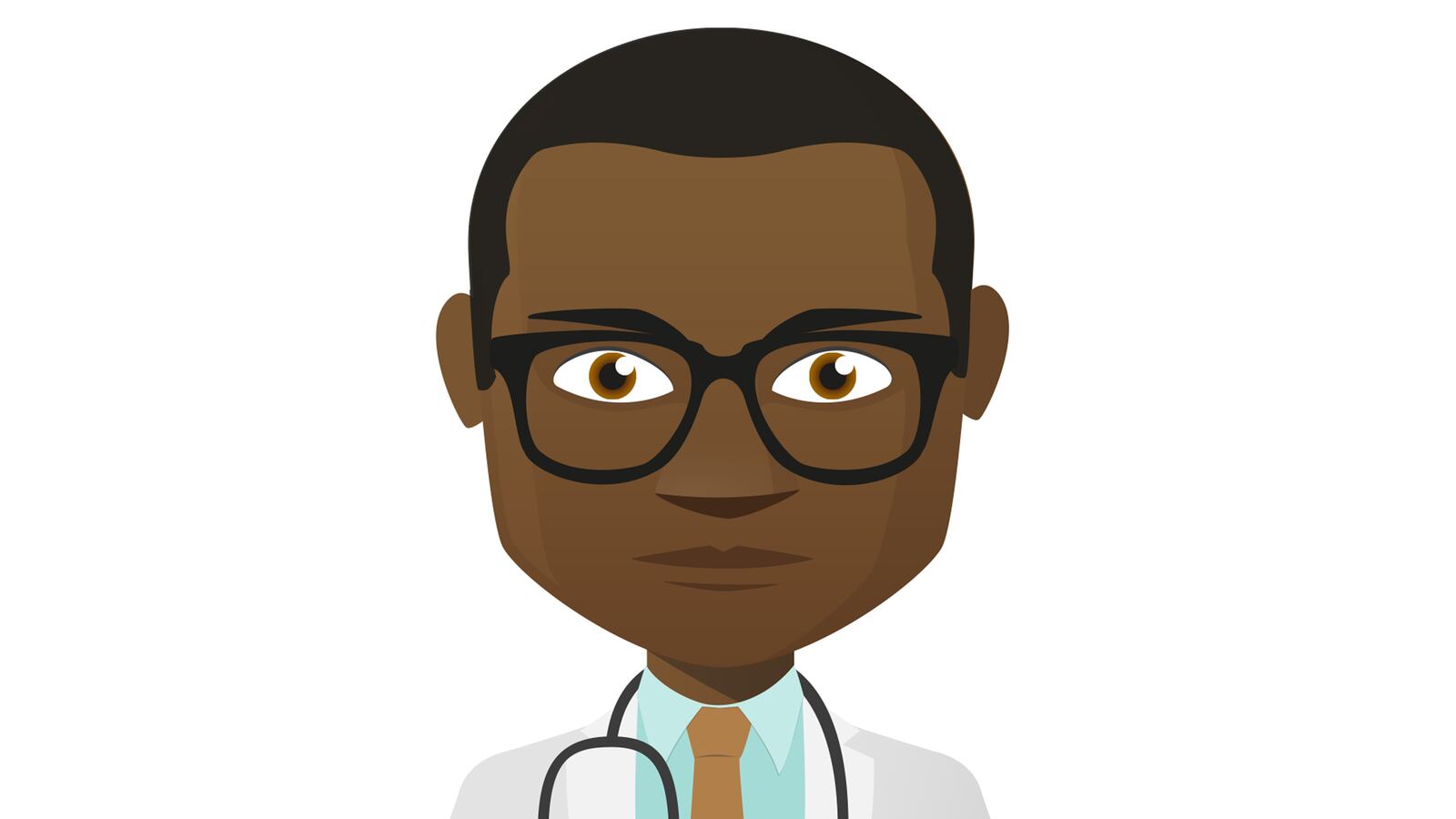When Damon Tweedy was a second-year medical student at Duke, he was working rotations in a labor ward one evening when a pregnant African American girl began screaming. Strangely, the patient, named Leslie, denied being pregnant. There was no question about it, however, and Tweedy’s supervising doctor discovered that she was suffering from a placental abruption, often the result of drug use. Leslie had emphatically denied to Tweedy that she was a drug user. Now, however, the physician, who was white, leaned into Leslie and demanded: “When is the last time you smoked crack?” Tweedy, who is black, was shocked; he had never heard a doctor accuse a patient like this, and he doubted she would have done so with a white patient. But Leslie’s response was just as shocking: Sobbing, she admitted that she was an addict, and had smoked crack two days earlier.
Tweedy recounts Leslie’s story in his new memoir, Black Man in a White Coat, a revealing, moving, and courageous examination of racism in American health care.
Tweedy takes us from his days as a medical student in the mid ’90s through his recent years as a practicing psychiatrist. In Leslie’s story, as in several of the book’s anecdotes, Tweedy sets up a scenario fraught with racial tension, leads you toward an expected conclusion, only to let the scene resolve ambiguously. His book asks important questions about how much racism exists in American medicine, and how best to address the alarming health disparities that remain between blacks and whites. While the book is not a polemic, Tweedy takes a few well-aimed shots at Republican governors who refused to expand state Medicaid programs, thereby helping to perpetuate the disparities.
With the election of Barack Obama and the civil rights progress America has made in recent decades, some conservatives continue to insist that we live in a post-racial era. Highlighting issues of race disparity, then, is “playing the race card” or “being divisive” or even something more sinister. Tweedy’s book is a powerful rebuke to the notion of a post-racial America. Health disparities between blacks and whites remain gaping, and Tweedy is relentless with the statistics: Blacks are twice as likely as whites to suffer from high blood pressure, heart disease, diabetes, certain cancers, and stroke; eight times as likely to be diagnosed with HIV, and nine times more likely to die of AIDS. Obesity is much more prevalent in blacks, with teen pregnancy and infant mortality also twice as high in the black community. And on it goes.
In light of these disparities, Tweedy embarked upon his book, he says, to improve the health of African Americans. “Why just blacks? Isn’t everyone’s health important?” some conservatives might protest. But as with Black Lives Matter, the focus on blacks does not reflect an anti-white agenda. Tweedy is confronting the most pressing issue: blacks are sicker and do get worse health care than others. Race bias in medicine continues to exist, Tweedy argues, and he offers anecdotal and scientific evidence to make his case.
There’s the story of a well-informed black patient, for example, whose doctor diagnoses him with a mental disorder for questioning his treatment regimen, and he cites a study that found blacks who complained of chest pain were less likely to be referred for further testing. Another study, released in September, found that blacks were given less pain medication than whites after similar procedures.
While Tweedy focuses on black discrimination, his book can also be read as an attack on generalized prejudice: how our reliance on shortcuts in assessing others disrupts communication and perpetuates stereotypes. That may sound trite, but Tweedy makes it work through touching stories that force you to ponder your own biases.
He boldly fesses up to his own: he admits to feeling superior to uneducated whites whom he considers rednecks, and presumes he has nothing in common with a white NASCAR fan only to bond deeply with him. He also admits to feeling disdain for Leslie for “putting the worst face of black America on display for all to see.” He goes on to rethink that disdain, however, after learning of Leslie’s background, which includes being born to a heroin-addicted mother, raped by her mother’s boyfriends, and dumped into foster care where she was further abused. Given this background, Tweedy asks, can she be held to the same standards as others?
Such contextualization many not sit well with conservatives, but the book possesses a thread about personal responsibility that will. While Tweedy demands that society confront the reality of racism in medicine, he also demands that African Americans confront certain behaviors. He lays part of the blame for their poorer health on diet—a historic preference for fried, fatty foods—as well as on other “unhealthy lifestyle behaviors.” While he cites studies to support these criticisms, he omits the fact that for many poor families in modern America, fast food is a budgetary necessity—because of government subsidies, fast food provides more calories at a cheaper price than nutritious food does. And 27 percent of black families in the U.S. are poor, with an astonishing 45 percent of young black children living in poverty.
His most resonant criticism here, however, concerns black prejudice toward homosexuals. Tweedy recounts his own history of bigotry—as a lifelong athlete, he considered gay jokes and homophobia par for the course. Homophobia in the black community is in fact high, and Tweedy reminds us that African Americans supported California’s anti-gay marriage Proposition 8 more than any other racial group. He articulates this hypocrisy succinctly: “As a black man, hating gay people simply didn’t add up. How could I get upset about being discriminated against because of my race while ignoring, or worse yet, being a part of, prejudice that others faced?”
This willingness to be self critical as well as his reluctance to be overtly partisan gives Tweedy’s book an evenhandedness that lends its conclusions added weight, even when he wades into partisan waters. His take on Obamacare, for example, is supportive but with reservations. His attack on the Republican governors who declined to extend Medicaid to people living just above the poverty line is understated but ultimately scathing. His message is clear: this decision will result in five million people going without insurance; and because the uninsured have worse health outcomes than the insured, health disparities will be perpetuated—and people will die—because of that decision.
There are broader criticisms of American health care here that I wished Tweedy had expanded on. He rightly attacks our system’s biomedical focus, for example, and suggests we place a greater emphasis on preventative care. And he hints at how the profit incentive can corrupt medical practice.
One does get the impression that Tweedy pulls some punches in the name of inclusiveness, but this may be a wise approach, as help must come from all quarters if we’re going to effect meaningful change: “Some of this responsibility rests with government and other large institutions, but much of it must occur at the individual and community level… If the goal is to improve the health of black people, who remain at the bottom of most health indexes, it shouldn’t matter whether the means to achieving this follows a liberal strategy, a conservative approach, or something in between.”






